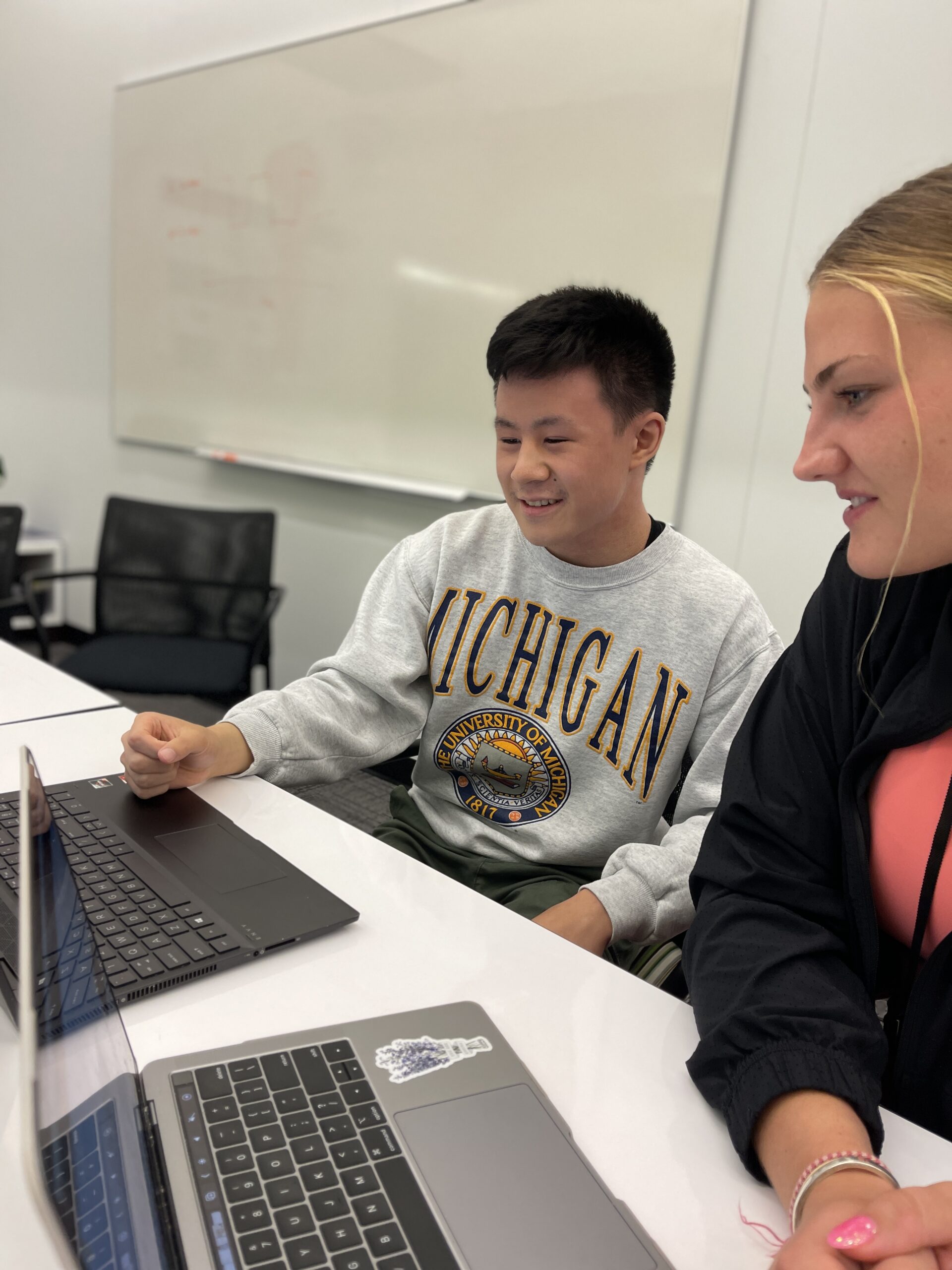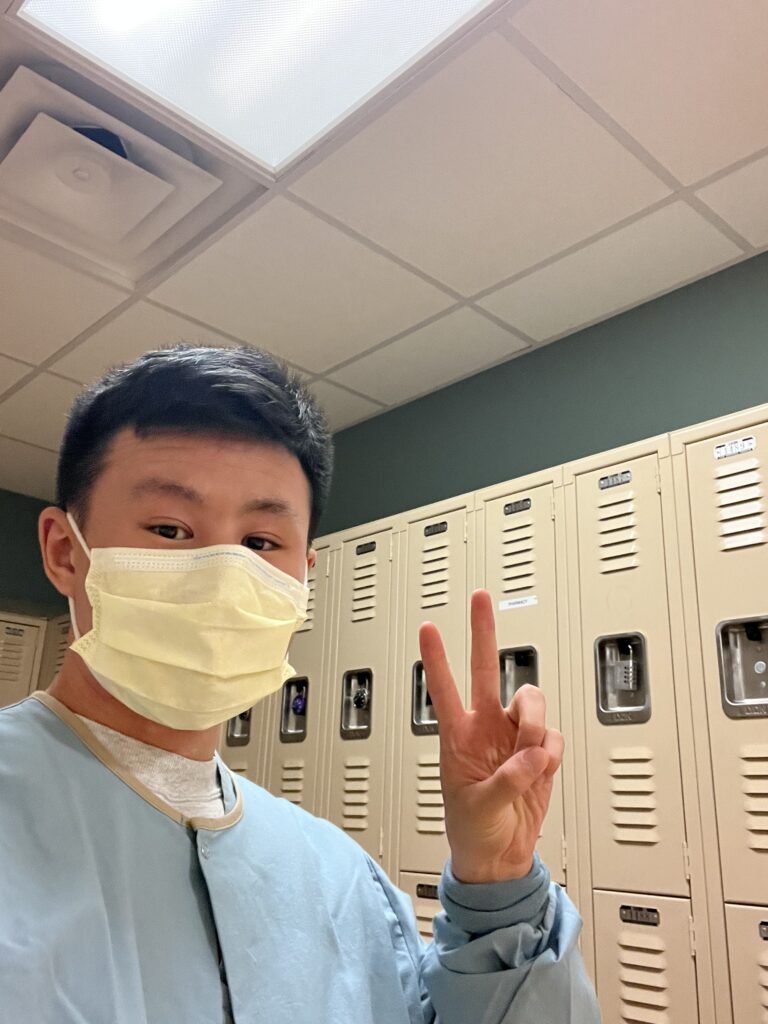Josh Tran, a pre-med student at U-M, shares his experiences as a transfer student, healthcare worker, and CHEPS researcher.

When I transferred to the University of Michigan less than a year ago, it felt as if I had jumped headfirst into the middle of a new book. I arrived at U-M halfway through my sophomore year, and my peers had already found their friend groups through the dorms and their student organizations. Meanwhile, I felt like a freshman again stumbling through the unfamiliar campus. While I was trying to adapt socially, I also had to adapt academically: being a pre-med student, I had to balance finding new friends while also taking some of the hardest classes (so far!) in my academic career.
The clock was already ticking on my time as an undergraduate. I wanted to hit the ground running to become as involved as I possibly could in the U-M community, so I decided to sign up for every organization and event I could get my hands on. Michigan has so many opportunities and pathways, but due to my rigorous schedule, I had to narrow my activities to only those I was passionate about. I was stuck figuring out how I wanted to shape the rest of my college experience, so I turned to my friends for guidance. Most of my close friends are engineers, so I wanted to combine my background in medicine with something that could also allow me to be involved in their field.
I’ve known all my life I’ve wanted to go into medicine. In my childhood, I was frequently in and out of hospitals due to my various illnesses, so I spent a lot of time talking to doctors and nurses at a young age. I appreciated how comforting and respectful they were to me in some of my most vulnerable moments, and that they showed a genuine interest in me getting better. Without the care I received I probably wouldn’t be here today, so I want to pay that care forward by becoming a doctor and exhibit the same level of care I was shown all those years ago.

To prepare for medical school, I closely involved myself with the healthcare field: working as a patient technician, spending hundreds of hours volunteering in various clinics, and joining clubs that promote general medicine and fund medical treatments for the underprivileged. I could assist in medical treatments and give bedside care, but I had no clue what it took to run a healthcare program. Naively, I thought the only people involved in the healthcare system were doctors and nurses, but in reality, the only way our healthcare system can function is in utilizing a diverse workforce consisting of various specialties. Clinicians treat the patients, but where is patient data stored and how is it optimized? Who is responsible for scheduling these thousands of clinicians? Whose job is it to make improvements to the healthcare system? After bringing these questions to a friend, I got my answer…healthcare engineers.
By working at the Center for Healthcare Engineering & Patient Safety (CHEPS), I have the opportunity to look behind the curtain and understand the big picture of the whole medical system. The project team I have been assigned to is called IPERCH (Identifying Patients in the Emergency Room for Care at Home). We are focused on a program called Hospital Care at Home, which provides hospital-level care to approved patients in the convenience of their home, increasing the amount of available hospital beds in the Emergency Department. In the process of improving this program, I have been able to work with and directly talk to healthcare professionals to improve their workflow and increase the quality of care patients receive. My team analyzes healthcare data to see what processes could be improved, and creates visualizations to communicate our changes and allow healthcare staff to easily see the progress the program has made. Through this experience, I have been able to become more familiar with systematic processes that Michigan Medicine utilizes, which I strongly believe will help me in my future endeavors as a physician.
Even though I’m not an engineer, it has been a wonderful experience supplementing my clinical background with operations research approaches. My favorite part about CHEPS has been being able to meet my engineering peers, some of whom are studying fields I’ve never even heard of. The first week of CHEPS, I was scared I wouldn’t be useful or fit in due to my lack of engineering knowledge, but I was quickly proved wrong as everyone welcomed me with open arms. Even though I don’t know the first thing about coding, I have been able to use my healthcare knowledge to teach my fellow CHEPsters about the systems we are trying to improve. Undoubtedly, I continue to learn from them every day as well. Despite coming from drastically different educational backgrounds, we are still able to collaborate and use our unique skill sets to work towards the same common goal. The community here at CHEPS has been amazing: everyone is so easy to talk to and get along with, it leaves me no choice but to come into work with a smile on my face every day.
— Written by Josh Tran, CHEPS Student
